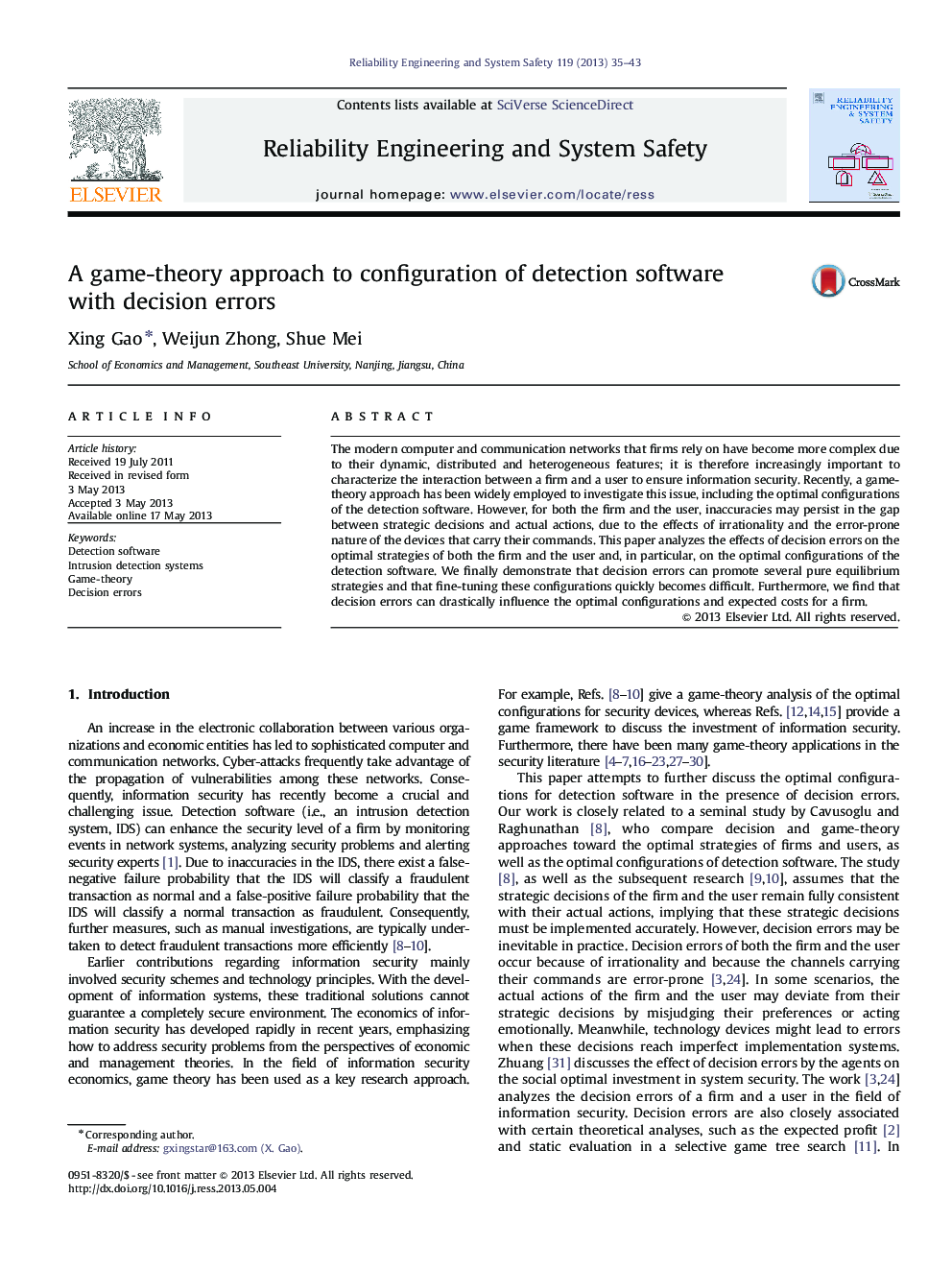| Article ID | Journal | Published Year | Pages | File Type |
|---|---|---|---|---|
| 805641 | Reliability Engineering & System Safety | 2013 | 9 Pages |
The modern computer and communication networks that firms rely on have become more complex due to their dynamic, distributed and heterogeneous features; it is therefore increasingly important to characterize the interaction between a firm and a user to ensure information security. Recently, a game-theory approach has been widely employed to investigate this issue, including the optimal configurations of the detection software. However, for both the firm and the user, inaccuracies may persist in the gap between strategic decisions and actual actions, due to the effects of irrationality and the error-prone nature of the devices that carry their commands. This paper analyzes the effects of decision errors on the optimal strategies of both the firm and the user and, in particular, on the optimal configurations of the detection software. We finally demonstrate that decision errors can promote several pure equilibrium strategies and that fine-tuning these configurations quickly becomes difficult. Furthermore, we find that decision errors can drastically influence the optimal configurations and expected costs for a firm.
